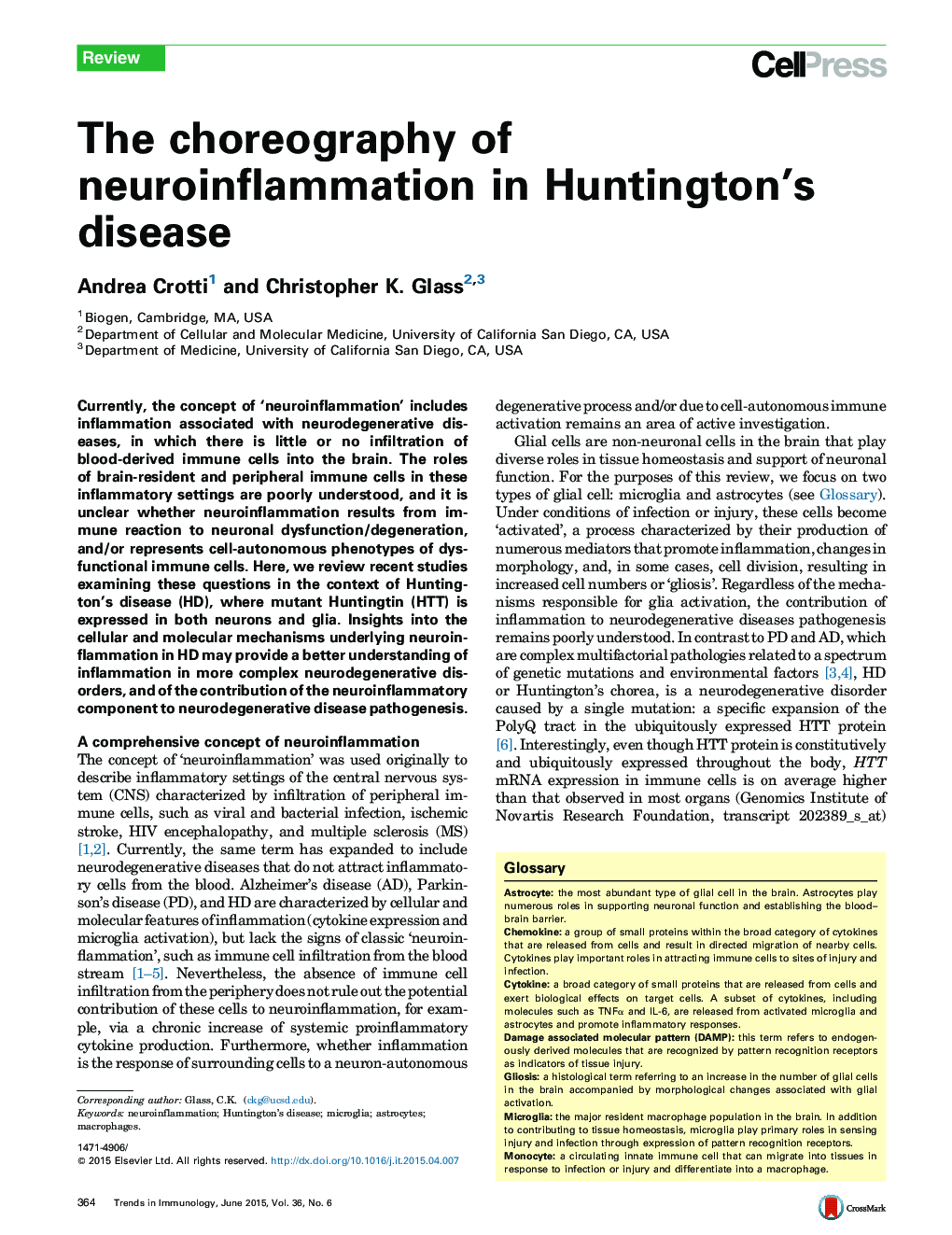| Article ID | Journal | Published Year | Pages | File Type |
|---|---|---|---|---|
| 4359839 | Trends in Immunology | 2015 | 10 Pages |
•The etiology and role of inflammation in neurodegenerative diseases is unclear.•In HD, mutant Huntingtin in microglia promotes proinflammatory gene expression.•Peripheral immune cells appear to have little involvement in CNS inflammation in HD.•Cell-autonomous microglia reactivity may impact HD inflammation and pathogenesis.
Currently, the concept of ‘neuroinflammation’ includes inflammation associated with neurodegenerative diseases, in which there is little or no infiltration of blood-derived immune cells into the brain. The roles of brain-resident and peripheral immune cells in these inflammatory settings are poorly understood, and it is unclear whether neuroinflammation results from immune reaction to neuronal dysfunction/degeneration, and/or represents cell-autonomous phenotypes of dysfunctional immune cells. Here, we review recent studies examining these questions in the context of Huntington's disease (HD), where mutant Huntingtin (HTT) is expressed in both neurons and glia. Insights into the cellular and molecular mechanisms underlying neuroinflammation in HD may provide a better understanding of inflammation in more complex neurodegenerative disorders, and of the contribution of the neuroinflammatory component to neurodegenerative disease pathogenesis.
